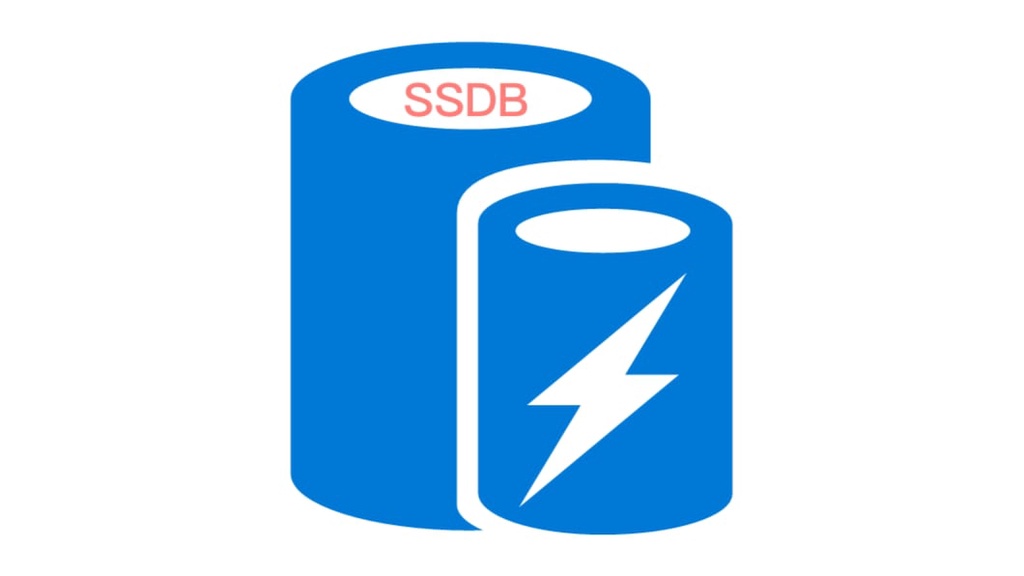分享一个用SSDB 做缓存的类,使用python sdk,可以作为一个服务跑起来。

1
2
3
4
5
6
7
8
9
10
11
12
13
14
15
16
17
18
19
20
21
22
23
24
25
26
27
28
29
30
31
32
33
34
35
36
37
38
39
40
41
42
43
44
45
46
47
48
49
50
51
52
53
54
55
56
57
58
59
60
61
62
63
64
65
66
67
68
69
70
71
72
73
74
75
76
77
78
79
80
81
82
83
84
85
86
87
88
89
90
91
92
93
94
95
96
97
98
99
100
101
102
103
104
105
106
107
108
109
110
111
112
113
114
115
116
117
118
119
120
121
122
123
124
125
126
127
128
129
130
131
132
133
134
__doc__ = """
ssdb_cache has a dictionary like interface and a SSDB(http://ssdb.io/) backend
It uses pickle to store Python objects and strings
Multithreading is supported
"""
import datetime
# pip install pyssdb --upgrade
import pyssdb
try:
import cPickle as pickle
except ImportError:
import pickle
class CACHE:
"""Stores and retrieves persistent data through a dict-like interface
Data is stored on disk using SSDB
cache_name/filename:
The name of Hashmap, use this name "filename" to be compatible with PersistentDict in webscraping library
expires:
A timedelta object of how old data can be before expires. By default is set to None to disable.
host:
The SSDB server host
port:
The SSDB server port
"""
def __init__(self, cache_name=None, filename=None, expires=None, host='127.0.0.1', port=8888):
"""initialize a new CACHE
"""
self.cache_name = filename or cache_name or 'cache'
self.expires = expires
self.ssdb_host = host
self.ssdb_port = port
self.ssdb_client = pyssdb.Client(host=self.ssdb_host, port=self.ssdb_port)
def __copy__(self):
"""make a copy of current cache settings
"""
return CACHE(cache_name=self.cache_name, expires=self.expires, host=self.ssdb_host, port=self.ssdb_port)
def __contains__(self, key):
"""check the database to see if a key exists
"""
return self.ssdb_client.hexists(self.cache_name, key)
def __getitem__(self, key):
"""return the value of the specified key or raise KeyError if not found
"""
value_meta_update = self.ssdb_client.hget(self.cache_name, key)
if value_meta_update is not None:
value_meta_update = self.deserialize(value_meta_update)
if self.is_fresh(value_meta_update.get('updated')):
return value_meta_update.get('value')
else:
raise KeyError("Key `%s' is stale" % key)
else:
raise KeyError("Key `%s' does not exist" % key)
def __delitem__(self, key):
"""remove the specifed value from the database
"""
self.ssdb_client.hdel(self.cache_name, key)
def __setitem__(self, key, value):
"""set the value of the specified key
"""
value_meta_update = {'value': value, 'meta': None, 'updated': datetime.datetime.now()}
self.ssdb_client.hset(self.cache_name, key, self.serialize(value_meta_update))
def __len__(self):
"""get the number of elements in CACHE
"""
return self.ssdb_client.hsize(self.cache_name)
def serialize(self, value):
"""convert object to a pickled string to save in the db
"""
return pickle.dumps(value, protocol=pickle.HIGHEST_PROTOCOL)
def deserialize(self, value):
"""convert pickled string from database back into an object
"""
return pickle.loads(value)
def get(self, key, default=None):
"""Get data at key and return default if not defined
"""
data = default
if key:
value_meta_update = self.ssdb_client.hget(self.cache_name, key)
if value_meta_update is not None:
return self.deserialize(value_meta_update)
return data
def meta(self, key, value=None):
"""Get / set meta for this value
if value is passed then set the meta attribute for this key
if not then get the existing meta data for this key
"""
if value is None:
# want to get meta
value_meta_update = self.ssdb_client.hget(self.cache_name, key)
if value_meta_update is not None:
return self.deserialize(value_meta_update).get('meta')
else:
raise KeyError("Key `%s' does not exist" % key)
else:
# want to set meta
value_meta_update = self.ssdb_client.hget(self.cache_name, key)
if value_meta_update is not None:
value_meta_update = self.deserialize(value_meta_update)
value_meta_update['meta'] = value
value_meta_update['updated'] = datetime.datetime.now()
self.ssdb_client.hset(self.cache_name, key, self.serialize(value_meta_update))
def clear(self):
"""Clear all cached data in this collecion
"""
self.ssdb_client.hclear(self.cache_name)
def is_fresh(self, t):
"""returns whether this datetime has expired
"""
return self.expires is None or datetime.datetime.now() - t < self.expires
if __name__ == '__main__':
cache = CACHE(cache_name='test')
print 'Name' in cache
cache['Name'] = 'Peng Qi'
print cache['Name']
print cache.get('Name')
cache.meta('Name', {'Age': 29})
print cache.meta('Name')
本文网址: https://pylist.com/topic/105.html 转摘请注明来源